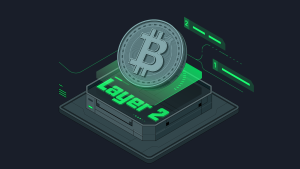Future of Mortgage Lending: Blockchain and Smart Contracts

Mortgage lending has traditionally been a complex and time-consuming process, requiring multiple intermediaries and manual paperwork. However, the advent of blockchain technology and smart contracts is set to revolutionize the mortgage industry. In this article, we explore the potential of blockchain and smart contracts in mortgage lending.
What is Blockchain?
Blockchain is a distributed ledger technology that allows for secure and transparent transactions without the need for intermediaries. It is a decentralized system that enables participants to maintain a shared database of transactions and data. Each block in the chain contains a timestamp and a cryptographic hash of the previous block, ensuring the integrity of the information.
How can Blockchain be Used in Mortgage Lending?

Blockchain technology can streamline the mortgage lending process by eliminating the need for intermediaries and reducing the time and cost associated with manual paperwork. Here are some potential use cases of blockchain in mortgage lending:
- Smart Contracts: Smart contracts are self-executing contracts that are stored on the blockchain. They can automatically enforce the terms of the agreement and facilitate the transfer of funds. In mortgage lending, smart contracts can be used to automate the underwriting process, verify the borrower’s identity and income, and ensure compliance with regulations.
- Transparent and Secure Transactions: Blockchain technology can provide a transparent and secure platform for mortgage transactions, reducing the risk of fraud and increasing the efficiency of the process. Each transaction is recorded on the blockchain, providing a tamper-proof record of the transaction history.
- Reduced Costs: By eliminating the need for intermediaries and manual paperwork, blockchain technology can significantly reduce the cost of mortgage lending. This can make mortgages more accessible to a wider range of borrowers.
Challenges to Adopting Blockchain in Mortgage Lending
Despite the potential benefits of blockchain in mortgage lending, there are several challenges that need to be addressed before widespread adoption can occur:
- Regulatory Hurdles: The mortgage industry is heavily regulated, and implementing blockchain technology will require regulatory approval and compliance with existing laws and regulations.
- Lack of Standards: There are currently no industry-wide standards for blockchain technology in mortgage lending, which can make it difficult for different parties to collaborate and share data.
- Scalability: Blockchain technology is still in its early stages, and there are concerns about its ability to handle large-scale transactions and support high volumes of data.
The future of mortgage lending looks bright with the potential of blockchain technology and smart contracts to streamline the process, reduce costs, and increase transparency and security. However, the challenges of regulatory approval, lack of standards, and scalability need to be addressed before widespread adoption can occur.







